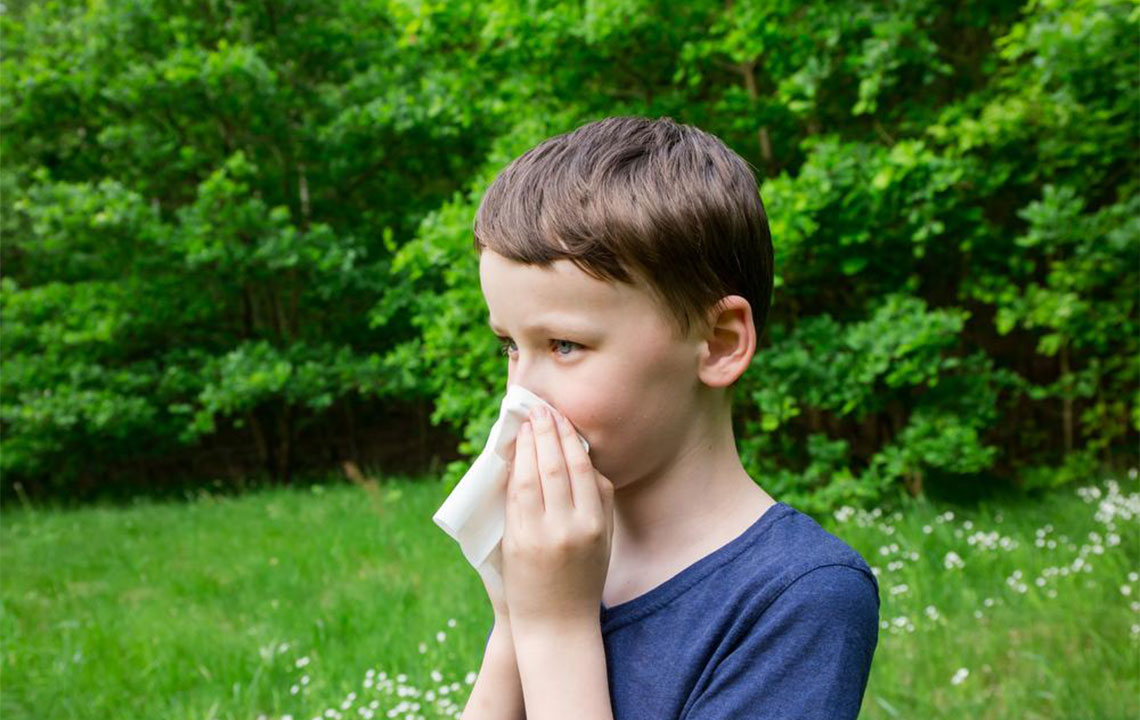Comprehensive Strategies for Managing Seasonal Allergies Effectively
Managing seasonal allergies requires understanding their causes and the most effective medications. From antihistamines and decongestants to nasal corticosteroids, this comprehensive guide highlights proven strategies to alleviate symptoms. Proper medication use, combined with allergy avoidance tips, helps improve daily comfort and health during allergy seasons. Consulting healthcare providers ensures personalized treatment plans for safe and effective relief from hay fever and other allergic reactions.

Effective Approaches to Conquer Seasonal Allergies
Every year, millions of individuals worldwide find themselves battling the unpredictable onset of seasonal allergies, also known as hay fever or allergic rhinitis. These allergies, driven by specific environmental triggers, can cause a range of uncomfortable symptoms that significantly impact daily life. Understanding how to manage these reactions with effective medications and lifestyle modifications is crucial for maintaining comfort and health during allergy-prone seasons.
Seasonal allergies are a result of the immune system overreacting to harmless environmental substances, leading to a cascade of symptoms. Whether it’s pollen during spring, mold spores in rainy seasons, or other airborne irritants, knowing the common allergens and effective treatments can make a substantial difference in quality of life.
What Causes Allergies? A Deep Dive
Allergies occur when the immune system perceives normally harmless substances, known as allergens, as threats. This misdirected response triggers the immune system to produce antibodies called Immunoglobulin E (IgE). Upon subsequent exposure, these antibodies release chemicals like histamines, leading to characteristic allergy symptoms such as sneezing, itching, and nasal congestion. Recognizing the triggers and understanding the underlying immune response allow for better management strategies tailored to individual needs.
Common environmental triggers responsible for seasonal allergies include:
Pollen from trees, grasses, and weeds
Dust mites lurking in household environments
Animal dander from pets like cats and dogs
Bee stings and insect bites
Specific medications known to elicit allergic reactions
Latex exposure in certain products
Mold spores thriving in damp areas
Understanding these allergens enables individuals to implement targeted avoidance strategies alongside medication use for optimal relief.
Top Medications for Seasonal Allergy Relief
Managing allergy symptoms effectively involves selecting the right combination of medications suited to individual needs. Below is an expanded overview of the most commonly recommended treatments:
Antihistamines – The First Line of Defense
Antihistamines are among the most widely used medications to combat allergy-related sneezing, runny nose, and itchy eyes. They work by blocking histamines released during allergic reactions, thus alleviating symptoms. These medications are available both over-the-counter (OTC) and by prescription, in various forms including pills, liquids, eye drops, nasal sprays, and topical creams. Historically, older antihistamines like Diphenhydramine (Benadryl) caused significant drowsiness, but newer agents such as Loratadine (Claritin), Fexofenadine (Allegra), and Cetirizine (Zyrtec) are designed to be non-sedating or less sedating, making them suitable for daytime use.
Reduced drowsiness and fatigue
Decreased nasal itching and sneezing
Relief from itchy, watery eyes
Convenience of various delivery methods
However, some side effects may include dry mouth, headaches, and occasional dizziness. It’s essential to follow dosing instructions and consult a healthcare professional for personalized advice, especially if you have other health conditions.
Decongestants – Clearing Nasal Congestion
For quick relief from nasal congestion, decongestant medications are highly effective. These drugs act by constricting blood vessels in the nasal passages, reducing swelling and facilitating easier breathing. Decongestants come in oral form, like pseudoephedrine (Sudafed), and nasal sprays such as Oxymetazoline (Afrin). While effective, they should be used with caution to avoid rebound congestion or other side effects.
Dizziness or mild lightheadedness
Nervousness or restlessness
Headaches
Dry mouth
Sleep disturbances, including insomnia
Sneezing or nasal burning sensations
Long-term overuse of nasal sprays can lead to rebound congestion, so they should be used sparingly and under medical supervision.
Nasal Corticosteroids – Reducing Inflammation
Prescription nasal sprays containing corticosteroids are one of the most effective options for controlling inflammation caused by allergic reactions. They help reduce swelling, mucus production, and other symptoms associated with allergic rhinitis. Brands like Fluticasone (Flonase) and Mometasone (Nasonex) are commonly recommended by healthcare providers. Although generally safe when used appropriately, some users may experience side effects such as nasal irritation, nosebleeds, or sore throat.
It’s crucial to follow the prescribed dosage and technique to ensure maximum effectiveness while minimizing side effects. Regular consultation with healthcare professionals helps optimize treatment plans and quickly address any adverse reactions.
Always seek customized medical advice to determine the most suitable combination of medications and lifestyle modifications tailored to your allergy profile. Implementing a comprehensive management plan can significantly reduce allergy severity and improve overall quality of life during peak allergy seasons.





